The latest forward-looking indicators for Australia’s housing construction industry were bleak.
Private new home sales have roughly halved from their December 2021 peak:
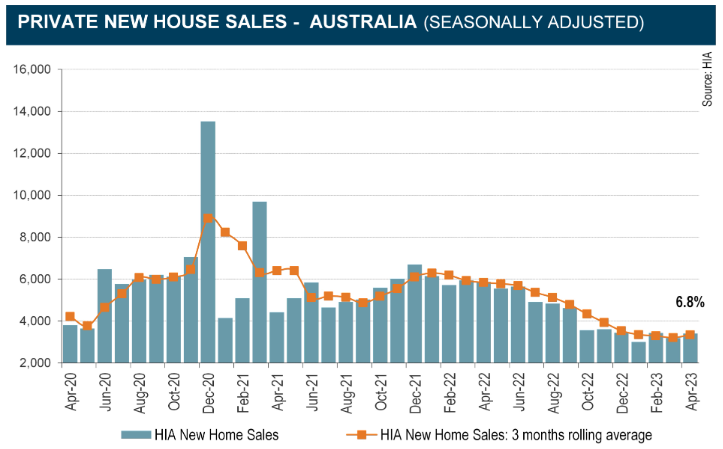
Housing Industry Association (HIA) Chief Economist, Tim Reardon, noted a major increase in the number of projects being cancelled.
“The cancelation rate remains elevated with more than one new home project cancelled for each four new homes sold per month”.
“This is its highest level since the start of the pandemic and is resulting in an accelerated decline in the pool of work sold, but not commenced”.
“The RBA’s rate increases last year and this year will continue to hold down new home sales and cause further cancellations as finance becomes unobtainable for an increasing number of buyers”, Reardon said.
Compounding the pain, the Australian Bureau of Statistics (ABS) reported a 31% year-on-year decline in the number of loans issued to purchase or construct a new home, which are now tracking at their lowest level in 15 years:
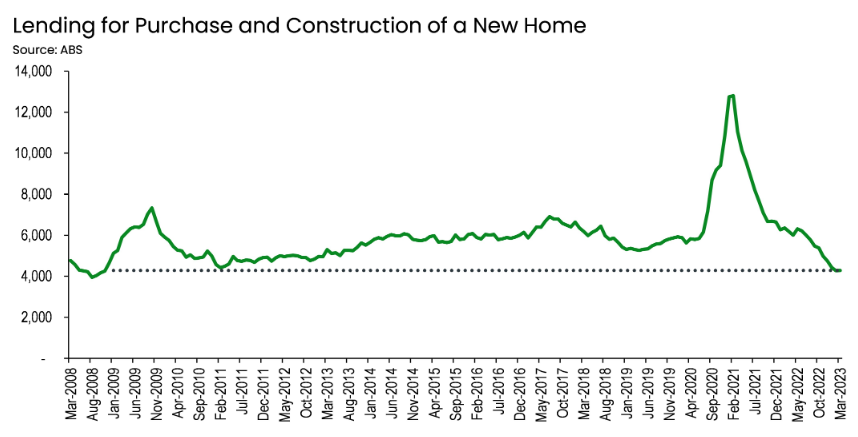
“The last time so few loans were issued for the purchase or construction of a new home was in November 2008, when the GFC caused a contraction in building”, HIA Chief Economist Tim Reardon noted.
“This data confirms that ongoing and significant declines in new home sales will see new home commencements slow significantly in the second half of 2023, under the weight of the higher cash rate”.
Earlier this month, the ABS reported that dwelling approvals had collapsed to their lowest level since April 2012.
It was the sixth consecutive monthly decline in trend dwelling approvals, with house approvals crashing to March 2013 lows and unit approvals tanking to February 2012 lows:
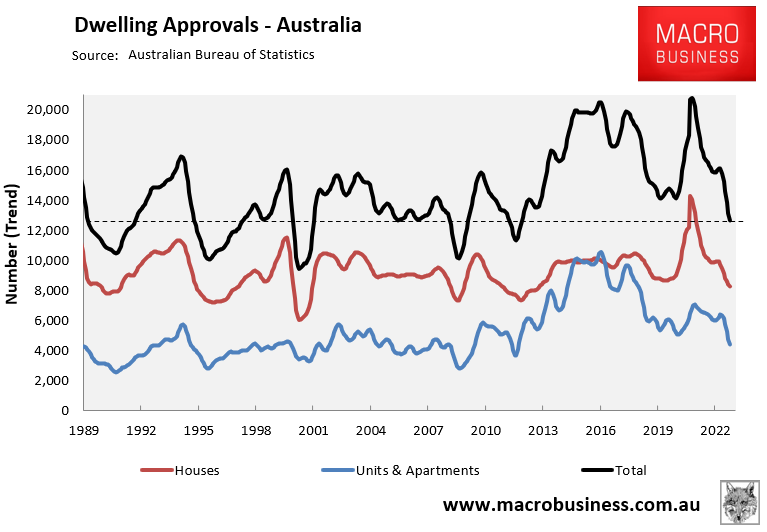
Therefore, all the forward-looking indicators are flashing red for Australia’s housing construction industry, which comes at the same time as thousands of home builders have already collapsed.
Earlier this month we reported that the 1672 housing construction firms had been placed into insolvency in Australia so far this year in what has been dubbed an “insolvency Armageddon”.
That is the highest number of insolvencies since 2014 – a mark that is likely to be overtaken with two months still to go in this financial year:
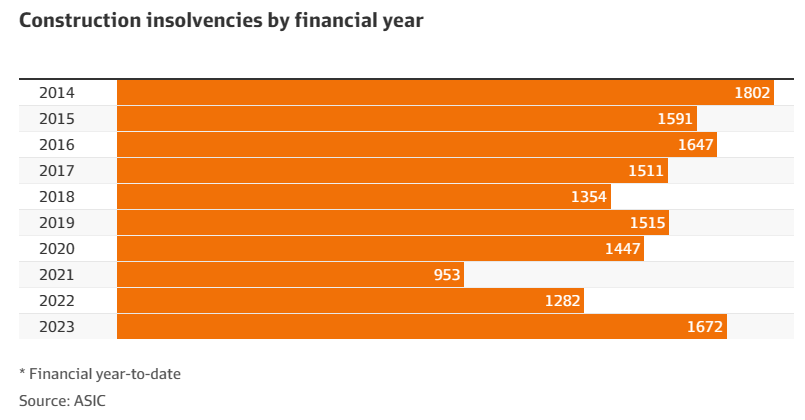
Given the dire outlook facing the industry, the Australian Construction Industry Forum (ACIF) has slashed its forecast of detached house construction by $1.1 billion from its last prediction in November, as well as forecast 61,000 job losses in the construction industry over the next three years.
“It’s a pretty soft market for next year, largely driven by residential costs. It’s the most labour-intensive type of construction we have”, ACIF consulting economist Dan Bunting said to The AFR.
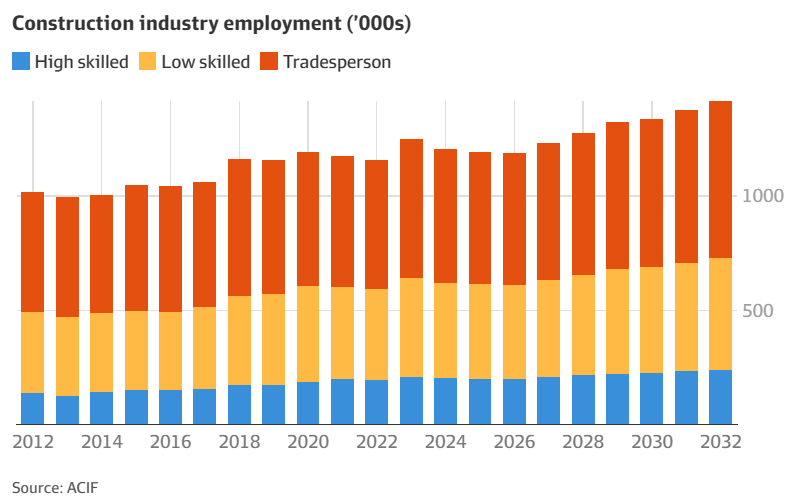
The losses will be spread throughout both skilled and unskilled roles, as well as trades.
According to the ACIF, after three years of decline, construction employment will rebound to 1.231 million in 2027 and progressively rise to 1.417 million by 2032.
The housing construction meltdown has arrived at the worst possible time given housing demand is surging as a result of Labor’s record net overseas migration.
Last week’s federal budget projected that 1.5 million net overseas migrants will arrive in Australia over the five years to 2026-27, which will drive population growth of 2.18 million people.
That 2.18 million projected increase in people is the equivalent of adding five Canberra’s or one Perth to Australia’s current population in only five years.
Australia’s rental crisis and homelessness will, therefore, worsen as demand continues to overwhelm the industry’s ability to construct new homes.
We are witnessing a slow-motion housing calamity.

